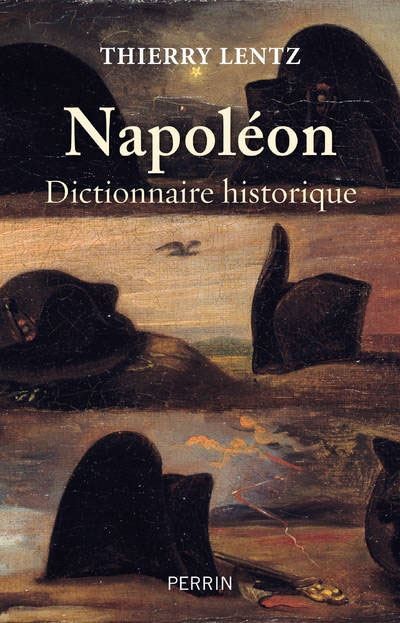napoleon.org: The Dictionnaire Napoléon*, edited by Jean Tulard, has been THE reference book for Napoleonic history. How is your Dictionnaire historique new?
Thierry Lentz: The Dictionnaire Napoléon is of course important, indeed indispensable, and it was not my intention to ‘compete’ with it. Furthermore, my book is not strictly speaking comparable. First, there’s only one author; Tulard’s book had several dozen, one of which was myself. My Dictionnaire historique does not pretend to be exhaustive but rather centres on the life story of Napoleon, from his birth to his death. He is always the centre of every entry, regardless of the subject in question. I hope that I have included all the material that has emerged during the thirty years since the first edition of the Dictionnaire Napoléon; and at the bottom of each entry I have included full historiographical updates. Finally, wherever possible, I have tried to keep the content and style of the entries ‘personal’, sometimes offering opinions that invite debate, at other times writing on subjects little discussed thirty years ago.
*Published by Éditions Fayard for the first time in 1989, and a second, revised and augmented edition came out ten years later.
napoleon.org: How did you go about choosing your 300 entries?
Thierry Lentz: There too, the choice was personal, though always with the necessity of having recounted the life of Napoleon, either in small brush strokes or large ones. As I explain in the introduction, I had not yet written a “big” biography of him. Here, then, is the big one, but in an unusual form. The entries cover not only events, peace, war, certain men and women (chosen a little randomly, I have to admit, though there are some who have to be there), but also “concepts” or ideas, as well as some asides revealing Napoleon’s opinions and actions across a huge range of subjects.
napoleon.org: You have dedicated your dictionary to Jean Tulard, the man who in his De Napoléon et quelques autres sujets wondered whether the dictionary as such would disappear. How do you see the future of such a book in the age of the online encyclopaedia Wikipedia?
Thierry Lentz: The dedication to Jean Tulard was a given. At the moment when I came to take stock of what I have learned about Napoleon, I could not but recognise all that I owe him, starting with his goodwill towards me, his help, and his friendship since the middle of the 1980s. He has done so much for Napoleonic history, for the transmission of that history, and for the recognition of that history, that his place at the head of this book was obvious. As for the future of dictionaries, I don’t think it’s compromised, provided that such books become a bit more “conceptual” rather than simply biographical or events-based catalogues. Several appear in France every year and none of them seem to me to be useless, for that very reason. A good example would be the Dictionnaire du conservatisme*, by Olivier Dard et al., and also some of the “dictionnaires amoureux” published by Plon. Dictionaries of this sort can be read as well as consulted, and they stimulate thinking via the details they provide. They are not mere cheat sheets, like Wikipedia often is, mistakes and bias to boot.
* Published by Éditions du Cerf in 2017.
napoleon.org: What is you oldest memory of a dictionary?
Thierry Lentz : It was the Petit Larousse we had at home, when I was a kid at the beginning of the 1960s. It was never in my parents’ small bookcase but always to hand. Still today, I wander through the entries in that old book, the pink pages, the Latinate French, the colour insert with its maps… which they too now also have a historical feel given the changes that have happened since the 1990s.


